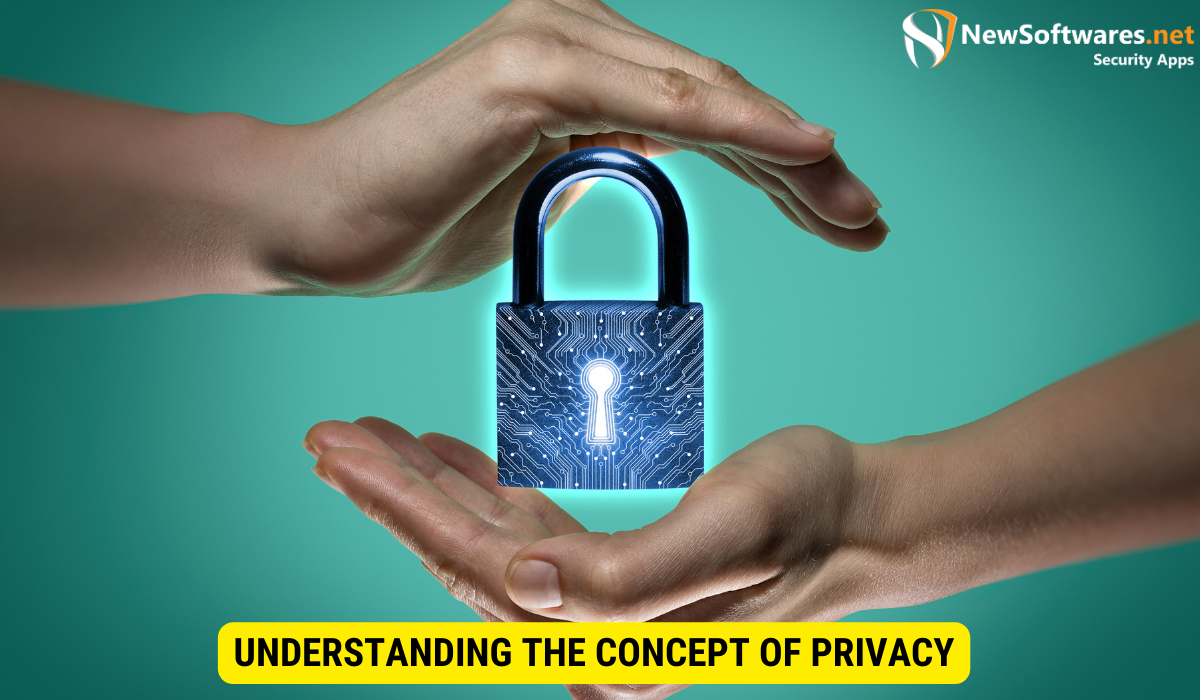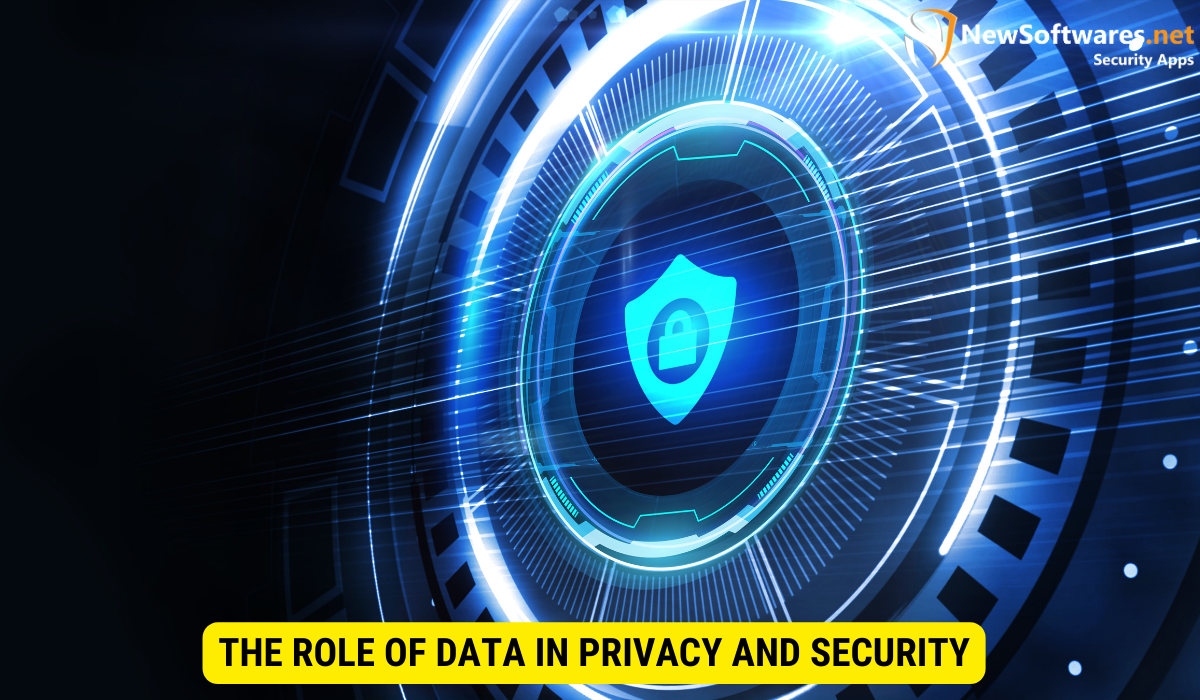In today’s digital age, where data is constantly being collected and shared, privacy has become a critical concern for individuals and organizations. It is closely related to security, as protecting privacy often involves implementing measures to safeguard data from unauthorized access, breaches, and misuse.
Understanding the Concept of Privacy

The concept of privacy has evolved over time, reflecting society’s changing needs and values. In ancient times, privacy was mainly associated with physical spaces, such as homes and bedrooms, where individuals were entitled to solitude. It was a sacred space where one could retreat from the outside world and find solace in one’s thoughts.
With the advent of industrialization and urbanization, privacy expanded to encompass the notion of personal space and the right to be left alone. As cities grew and populations became denser, the need for privacy extended beyond the confines of one’s home. People sought refuge in public parks, libraries, and other communal spaces, where they could find moments of respite and escape the prying eyes of others.
In the 20th century, technological advancements and the rise of mass media posed new challenges to privacy. As individuals became more connected, concerns about surveillance, data collection, and invasion of privacy emerged. For example, the invention of the telephone allowed for conversations to be overheard, raising questions about the boundaries of private communication.
Today, the digital revolution has brought privacy to the forefront, as personal information is constantly being collected, stored, and analyzed. With the rise of social media platforms, persons willingly share intimate details of their lives, blurring the line between public and private. The concept of privacy has expanded to include physical spaces and the digital realm, where personal data is vulnerable to exploitation and misuse.
The Historical Evolution of Privacy
The understanding of privacy continues to evolve as new technologies emerge and society grapples with the implications of increased data sharing, surveillance, and the erosion of personal boundaries. The historical evolution of privacy demonstrates the intricate relationship between societal changes and the concept of personal privacy.
In ancient civilizations, privacy was a luxury afforded to the elite. The wealthy built elaborate palaces with secluded gardens and hidden chambers, creating spaces shielded from the common people’s prying eyes. Privacy was seen as a symbol of power and privilege, a way to separate oneself from the masses.
During the Middle Ages, privacy took on a different meaning. With the rise of feudalism, people sought privacy within the confines of their own homes. The castle became a symbol of privacy and security, with thick stone walls and moats protecting the inhabitants from external threats. Privacy was closely tied to notions of safety and protection.
The Renaissance period brought about a shift in the understanding of privacy. With the rise of humanism and the emphasis on individualism, privacy became associated with personal autonomy and freedom. The private study or library became a sanctuary for scholars and intellectuals, where they could pursue knowledge and engage in introspection away from the prying eyes of society.
The Industrial Uprising and the subsequent urbanization of society brought new challenges to privacy. As people migrated to cities and lived in close proximity to one another, the need for privacy extended beyond the physical space of the home. Privacy became a way to assert one’s individuality and maintain a sense of self in an increasingly crowded and interconnected world.
The advent of photography and the mass media in the 19th century further complicated the concept of privacy. Suddenly, images of individuals could be captured and disseminated without their consent, raising concerns about the invasion of personal privacy. The rise of tabloid journalism and paparazzi culture further eroded the boundaries between public and private life.
Different Perspectives on Privacy
Privacy is a complex and multifaceted concept that can be viewed from different perspectives. Philosophically, privacy is seen as a natural right that individuals possess. It is closely tied to notions of autonomy, dignity, and freedom. The right to privacy allows individuals to control the information shared about them and maintain a sense of personal autonomy.
From a legal standpoint, privacy is protected by various laws and regulations that aim to uphold individual rights and prevent unwarranted intrusion. These laws differ across jurisdictions and may cover data protection, surveillance, and confidentiality. The legal framework surrounding privacy seeks to balance individual rights and societal interests.
In the digital realm, privacy takes on new dimensions. Online privacy focuses on protecting personal information shared on the internet, and it often involves concerns over data security, online tracking, and digital surveillance. The rapid advancement of technology has outpaced the development of legal frameworks, leading to ongoing debates about the scope and limits of online privacy.
Privacy in the Digital Age
The rapid advancement of technology and the extensive use of the internet have given rise to unprecedented challenges to privacy. In the digital age, various entities collect and store personal data, including social media platforms, search engines, government agencies, and businesses. This data can be used for targeted advertising, algorithmic decision-making, and even surveillance.
Furthermore, the growth of social media and online sharing has blurred the line between public and private information, as individuals willingly share personal details of their lives. The constant connectivity and convenience offered by digital devices also present opportunities for hackers and cybercriminals to exploit vulnerabilities and gain illegal access to sensitive information.
Protecting privacy in the digital age requires a combination of individual responsibility, technological safeguards, and legal protections. It is important for individuals to be aware of the information they share online, understand the privacy settings on different platforms, and take steps to secure their personal data. Additionally, governments and organizations must enact robust privacy policies and invest in cybersecurity measures to protect their users’ privacy.
The concept of privacy will continue to evolve as technology advances and society grapples with the implications of an increasingly interconnected world. As individuals, it is crucial to remain vigilant and proactive in safeguarding our privacy rights while also recognizing the importance of striking a balance between privacy and the benefits that technology brings.
The Intricate Relationship between Privacy and Security
Why Privacy Matters in Security
Privacy and security are intrinsically linked, as protecting privacy often requires implementing security measures. Privacy concerns arise when personal data is accessed, used, or disclosed without the individual’s consent. To safeguard privacy, organizations must ensure the confidentiality, integrity, and availability of data.
Additionally, privacy is crucial for building trust. When individuals feel that their personal information is being treated with respect and care, they are more likely to engage with organizations and share the necessary data to enable personalized services.
The Balance between Privacy and Security
There is an ongoing dispute about the balance between privacy and security. Some argue that enhanced security measures are necessary to protect against potential threats, even if it means sacrificing certain aspects of privacy. Others emphasize the importance of safeguarding privacy rights, as excessive security measures may infringe upon individual liberties and lead to unjust surveillance.
Striking the accurate balance between privacy and security is a delicate task that requires thoughtful consideration. It requires finding solutions that adequately protect personal information while ensuring the ability to prevent and address security threats.
Privacy vs Security: A False Dichotomy?
The relationship between privacy and security is often portrayed as a trade-off – an either-or proposition where enhancing one comes at the expense of the other. However, this dichotomy is not always accurate. Privacy and security can be mutually reinforcing, and effective security measures can be implemented without compromising privacy.
Organizations can embed privacy considerations into their security measures by adopting privacy-by-design principles. This involves implementing safeguards that protect personal information from the outset and throughout its lifecycle. Privacy-enhancing technologies, such as encryption and anonymization, can help ensure data security while respecting privacy rights.
The Role of Data in Privacy and Security

The Importance of Data Protection
Data has become a valuable commodity in today’s digital ecosystem. It is generated and collected at an unprecedented rate, creating immense opportunities for innovation and insights. However, the misuse or mishandling of data can have serious consequences for privacy and security.
Data protection involves implementing measures to safeguard personal information from unauthorized access, use, or disclosure. This includes implementing robust security measures, ensuring compliance with privacy regulations, and fostering a data protection culture within organizations.
Privacy Laws and Data Regulation
Privacy laws and data regulations protect personal information and ensure data security. These laws vary across jurisdictions but often require organizations to obtain informed consent before collecting their data, notify individuals about how their data will be used, and provide mechanisms for individuals to exercise their privacy rights.
Regulatory frameworks like the European Union’s General Data Protection Regulation (GDPR) impose obligations on organizations to implement privacy and security measures, report data breaches, and give individuals greater control over their personal information.
Compliance with privacy laws and data regulations is essential for safeguarding data and maintaining trust with customers, clients, and stakeholders.
The Future of Data Privacy and Security
As technology advances and data becomes increasingly pervasive, the future of data privacy and security remains a dynamic and evolving landscape. Emerging trends, such as the Internet of Things, artificial intelligence (AI), and big data analytics, present both opportunities and challenges.
Individuals, organizations, and governments must stay vigilant and adapt to these changes by implementing appropriate privacy and security measures. This includes staying informed about evolving privacy laws, adopting privacy by-design principles, and fostering a culture of privacy and data protection.
Key Takeaways
- Privacy refers to the individual’s right to control access to their personal information and is closely related to security.
- Privacy has evolved over time, reflecting societal changes and advancements in technology.
- Privacy can be viewed from different perspectives, including philosophical, legal, and digital dimensions.
- The digital age presents unique challenges to privacy, with constant data collection and sharing.
- Privacy and security are intertwined, and protecting privacy often involves implementing security measures.
- Finding the right balance between secrecy and security is crucial.
- Data protection is essential for safeguarding privacy and security.
- Privacy laws and regulations are crucial in protecting personal information and ensuring data security.
- The future of data privacy and security requires ongoing adaptation and vigilance.
FAQs
Why is privacy important?
Privacy is important as it allows individuals to maintain autonomy, dignity, and freedom. It also helps build trust and ensures that personal information is respected and cared for.
How does privacy relate to security?
Privacy and security are closely related, as protecting privacy often requires implementing security measures. Data breaches and unauthorized access can compromise both privacy and security.
Can privacy and security be balanced?
Yes, privacy and security can be balanced. Organizations can protect personal information while maintaining security by adopting privacy-by-design principles and incorporating privacy-enhancing technologies.
What is data protection?
Data protection involves implementing measures to safeguard personal information from unauthorized access, use, or disclosure. It includes implementing security measures, complying with privacy regulations, and fostering a data protection culture.
How can individuals protect their privacy online?
Individuals can protect their privacy online by being aware of the information they share, understanding privacy settings on different platforms, and using strong passwords and encryption. It is also important to regularly update software and be cautious of phishing attempts.
Conclusion
By exploring the concept of privacy, its historical evolution, its relationship with security, and the role of data in privacy and security, we gain a deeper understanding of protecting personal information in today’s digital age. By adopting privacy-enhancing measures and staying informed about evolving privacy laws, we can work towards a future where privacy and security coexist harmoniously, enabling individuals to enjoy the benefits of the digital world while maintaining control over their personal information.
